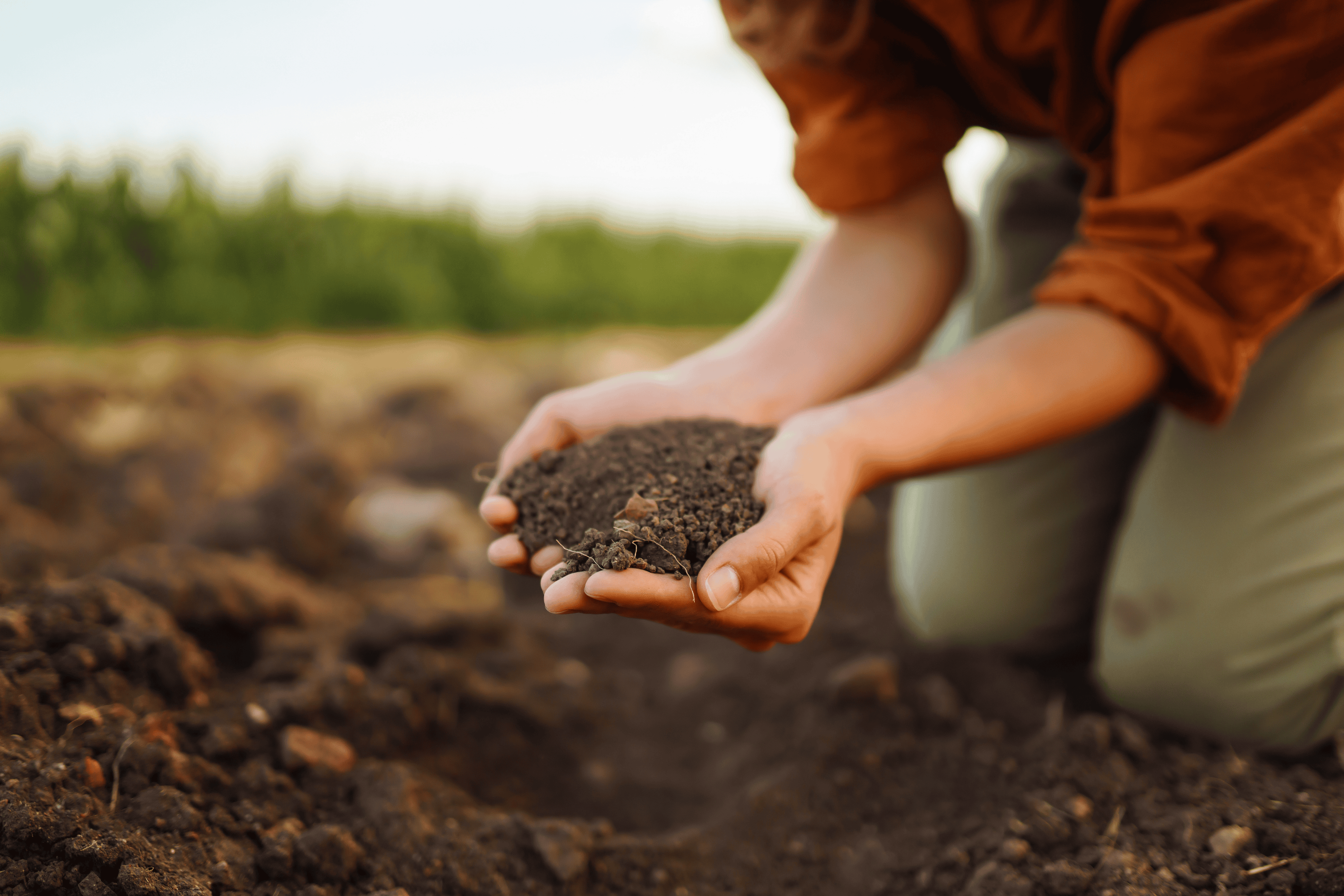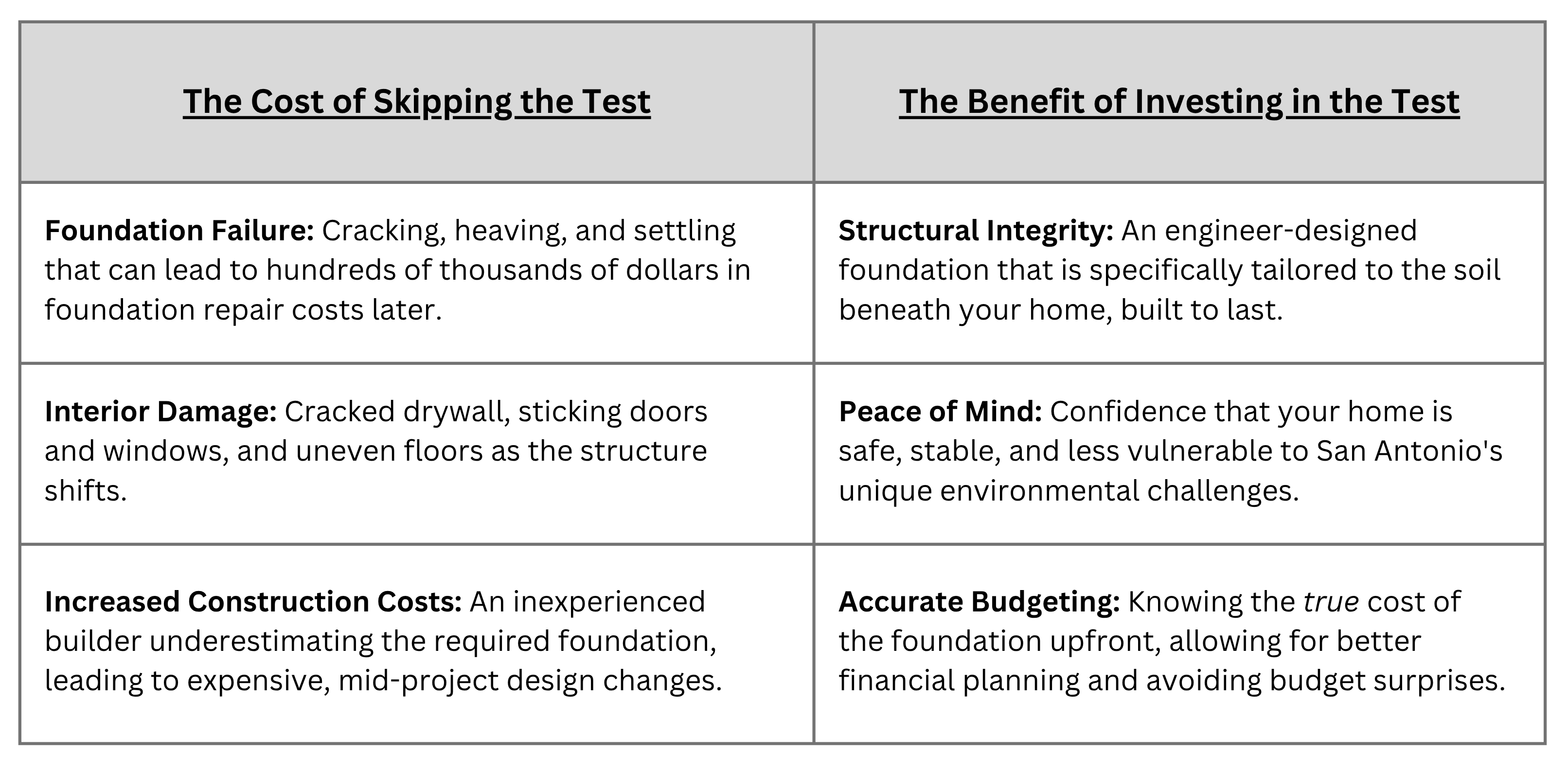
Soil Testing 101: Why This First Step is Crucial for Your San Antonio Foundation


Building a home in San Antonio is an exciting journey, but before you pick out a single tile or cabinet, there’s one critical step that can save you tens of thousands of dollars and countless headaches down the road: Soil Testing, also known as a Geotechnical Investigation.
In an area notorious for foundation problems, skipping this essential first step is the biggest gamble you can take on your dream home. Here’s a breakdown of why soil testing is not just a formality, but the foundation of a successful San Antonio custom build.
San Antonio’s Foundation Frenemy: Expansive Clay
If you live in San Antonio or the surrounding Bexar County area, you are building on some of the most challenging soil in the country. The dominant soil types—particularly the Vertisols or Houston Black Clay in the mid-county area—are often referred to as "expansive clay" because of one key characteristic: they hold water like a sponge.
- When it Rains: The clay absorbs moisture and swells (expands), exerting immense upward and lateral pressure on your foundation, which can cause it to heave.
- When it's Dry (Drought): The soil releases moisture and shrinks (contracts), pulling away from the foundation and creating voids, which can cause it to settle and crack.
San Antonio’s dramatic weather swings—from long, hot droughts to sudden, heavy rainstorms—exacerbate this shrink-swell cycle, making foundation movement an ongoing threat. Your custom foundation must be specifically engineered to combat this movement.
What Soil Testing Reveals (And Why It Matters)
Soil testing involves a licensed geotechnical engineer drilling into the earth at your specific building site to take deep soil samples (soil borings). These samples are then analyzed in a lab to create a Soil Report. This report is your blueprint for a stable foundation.
Here are the critical details the test reveals:
1. The Plasticity Index (PI)
This is the single most important number for a San Antonio builder. The PI measures the soil's potential to expand and contract with changes in moisture.
- Your PI Score is Critical: A high PI indicates highly expansive clay. A low PI suggests more stable soil. This score directly dictates the foundation design needed to accommodate or resist soil movement.
2. Load-Bearing Capacity
This measures the soil's ability to support the weight of your home. If the soil is weak, loose, or too compressible, it will settle over time. Knowing the bearing capacity tells the engineer how wide or deep the foundation footings must be to safely distribute the house's weight.
3. Soil Composition at Different Depths
San Antonio soil conditions can vary drastically even across a small lot. The report maps out the different layers of soil—clay, limestone, sand, or even bedrock—and at what depth the most stable layer is located. This is essential for determining if a traditional slab-on-grade will work, or if a deeper solution like drilled piers or post-tension cable slabs are required.
4. Groundwater Levels
High groundwater can affect the pressure on your foundation and require additional drainage or water management strategies to prevent future issues.
The Return on Investment: Avoiding Costly Future Repairs
While a soil test and the resulting specialized foundation design are an upfront investment, they are one of the most cost-effective decisions you will make in the entire building process.

✅ Your Next Step: Hire a Geotechnical Engineer
Soil testing is not a DIY job. It requires a licensed Geotechnical Engineer with expertise in local San Antonio geology. They are the only professionals qualified to perform the borings, interpret the lab results, and provide the official report that your structural engineer and builder will use to design your custom foundation.
The moral of the story is simple: In San Antonio, you can’t trust what you see on the surface. Protect your investment by starting with a professional soil analysis. Your beautiful custom home deserves a foundation that is as strong and stable as your vision. At Joseph Creek Homes, soil testing is a step included in our home building process. Contact us today to get started with your new construction home!



